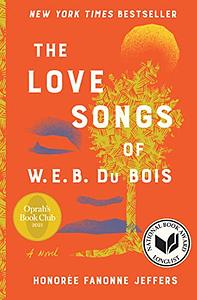Book Review The Love Songs of W.E.B. DuBois by Honoree Fanzine Jeffers
I am going ahead and saying this will be my favourite book of the year. It is a masterpiece. It is a history lesson wrapped up in a generational family saga with amazing characters, compelling prose, and extraordinary storytelling. Both heart wrenching and hopeful, despairing and inspiring it will captivate you to the end.
The book uniquely and powerfully captures the dehumanization and oppression of Indigenous and Black people from colonization, slavery, the Indian Removal Act, Civil War, Reconstruction, Jim Crow to the present in vivid detail. It brilliantly conveys factual information through the education and research of the characters, and the experiences of the family, blending and weaving past and present. The heart wrenching stories filled with indivdual, community and family resilience. The similarities and interconnections between the Indigenous and Black people in their experiences of colonization and slavery, along with their continued oppression and resilience, are impactfully threaded through the story.
The story is told through the eyes of one family stretching through generations from the colonization of the Creek People and slavery up to the present. The narrative weaves back and forth through these eras, immersing you within each time period and the trauma, suffering and obstacles of each era. It can be confusing at times to track how everyone is related; due to the presence of both acknowledged and unacknowledged children. However, this does not detract from the story, in fact I felt like re-reading the book at the end once I had a solid understanding of the family connections.
Jeffers identifies this as a feminist novel and this is compellingly explored. Her female characters are dynamic, witty, strong, vulnerable and damaged. They are fierce. The novel portrays the suffering of girls and women through the ages, both within and outside of the family. It examines the limitations and gradual expansion of their roles, the objectification and sexualization of Black girls and women, and the central role they play within the family and community. In many ways, it is a love song to Black women recognizing the power they hold to lift up their families and communities and the sacrifices they make for them. Motherhood is explored from every angle and is so powerfully rendered.
The importance of education underpins this novel - from the illegal teaching of slaves to read and write, to segregation and desegregation in school and the challenges of inhabiting all white spaces, such as many colleges. The forces trying to dismantle and disrupt the progress of Black schools, colleges and students was fascinating, as was the ongoing debate about who was more influential, Booker T. Washington or W.E.B. DuBois.
At its core, this novel is the power of community and family to protect, sustain, hold you close and give you strength and hope. They are the centre of healing. Much like the ever present pecan tree, family and community symbolize sorrow, strength, love, loss, beauty and hope.
This book is a tour de force and I consider it a must read.




